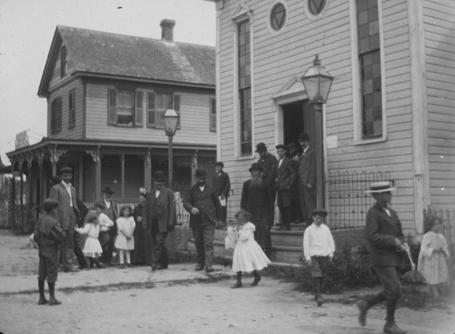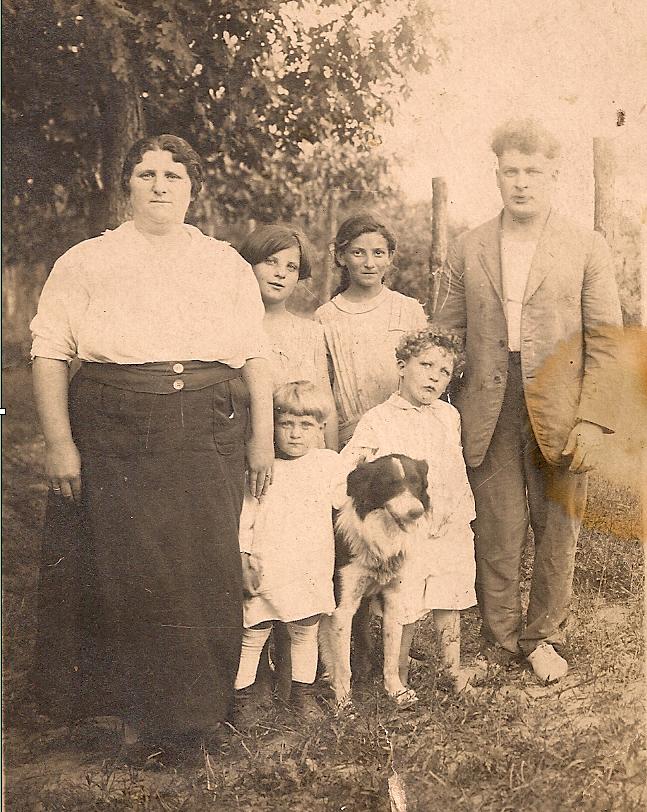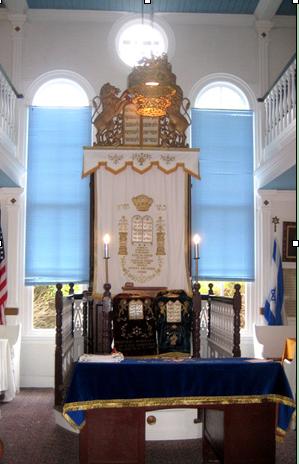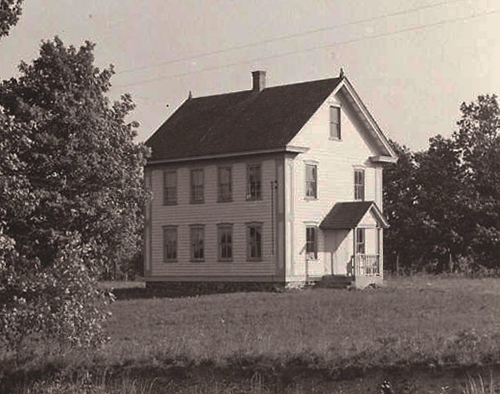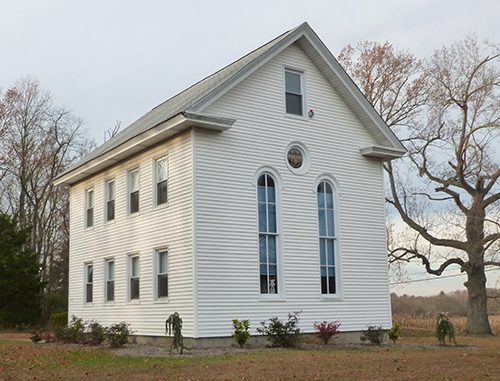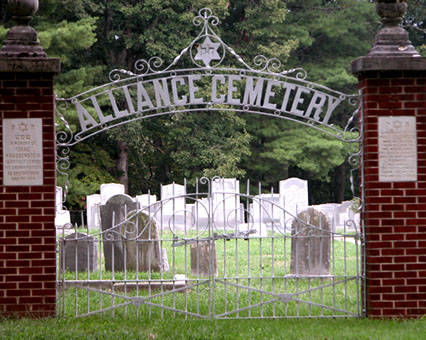 |
|
| Contents | |
| Farming Communities of NJ Homepage |
|
| Alliance, Norma & Brotmanville |
|
| Woodbine | |
| Rosenhayn and Carmel | |
| Roosevelt |
|
| Farmingdale | |
| After World War II | |
| Synagogues
of Other Farming Communities |
|
| In the News | |
| Resources | |
| Photos | |
| JewishGen
Home Page |
|
| KehilaLinks Home Page |
|
|
| The Alliance Colony
was a Jewish agricultural community that was
founded in May 1882. Funded by the Hebrew
Emmigrant Aid Society and The Baron De
Hirsch Fund, it was named after the Alliance
Israélite Universelle of Paris.
The Alliance Colony was settled by 43 families
who fled late 1800s Russian pogroms to start
one of the first Jewish agricultural
settlements in the US. The initial group of settlers were largely from the Am Olum movement. Focused on productivization through agricultural labor as a means of demonstrating to the world that the Jewish people could be a productive asset, the Am Olum settlers sought to create a communal settlement. The first building to house the settlers was a communal barracks that was referred to by the settlers as "Castle Garden" after the ships arrival facility in New York. In southern New Jersey’s Pine Barrens, amid the scrub oaks and sandy soil, they became farmers, kibbutzniks attempting local socialism. Often the land was unyielding. The settlers, mostly tradesman or scholars, were ill-prepared for a life of clearing tree stumps and birthing animals. The Alliance Colony consisted of a strip of cooperative farms located on the Maurice River, nearly five miles south of Vineland, N.J. The colony consisted of Alliance, Norma & Brotmanville. Norma & Brotmanville are unincorporated communities within Pittsgrove Township in Salem County. Alliance, about 40 miles, or 65 kilometers, south of Philadelphia, had advantages that other colonies did not. The Jersey Central Railroad connected it to markets in New York and Philadelphia. A few original settlers expanded beyond the 15 acres, or 6 hectares, they were originally granted by buying out other local farmers. The Alliance Colony was primarily a farming community but also included various craftsmen, such as cabinetmaking, blacksmithing and masonry. Eventually a clothing factory was established by Abraham Brotman, which is still in existence. The factory gave settlers work in the winter. The area is famous for its Vineland Kosher Poultry, which slaughtered chickens raised in neighborhood coops. In the spring of 1900 a canning factory was established in Alliance (Norma). The Allivine Company, which owns the canning factory, also provided farming practices lessons on its own model farm, and established lecture courses on agricultural topics. The cannery provided farmers with a local market for their produce. In 1901, there were 151 adults at Alliance and 345 children. There were 78 farms. Alliance focused on education, building several well recognized schools as well as four synagogues--at least one of which still is in operation--as well as a Jewish cemetery. Zion
in the New World: The Lubarskys find
the "Goldene Medina"
This is a a history of the Simcha & Pearl Lubarsky family by Leslie Larson Like
thousands of other Jews, the Lubarskys fled
southwestern Russia for America in the early
1880s. They were part of the Zionist Am Olam
movement, coming to the United States to become
Jewish farmers and build their own state, “like
the Mormon’s state of Utah.” They were one of
the 43 founding families of the Alliance Colony
in New Jersey. After some 15 years there, they
migrated West to San Francisco — just in time
for the 1906 San Francisco Earthquake. For a
time, the Lubarsky sons had a chicken ranch in
Petaluma, and were thus part of another Jewish
“back to the land” movement on the West Coast.
Synagogues of: Alliance Brotmanville Norma Permission to reprint the above granted by Allen Meyers on March 8, 2018 Southern New Jersey Synagogues: A Social History - Highlighted by Stories of Jewish Life form the 1880's -1980's Author: Allen Meyers Publisher: Marlton, NJ Staples, 1991 The following Jewish organizations existed in Alliance in 1900:
Alliance never stopped needing subsidies from its backers, and it proved impossible to keep the second generation on the farm. The population slowly declined after 1890, by the mid-1920s only a handful of Jews were left in Alliance. While Alliance received an influx of Jewish immigrants during and just after World War II, nearly every family had left the community by the 1970s. Remnants of Alliance Colony exist today:
The home of Moses Bayuk, the founder of the colony is still standing and there are plans to turn the property into a cultural center and museum. Born in Eastern Europe, Bayuk was a lawyer, Jewish scholar and farmer. He died in 1932. "I had a farm in Jersey", Molly Staub, Forward, Aug 5 2015 The Last of the Jewish Farmgirls (New York Times June 22, 2005) Alliance Colony |
